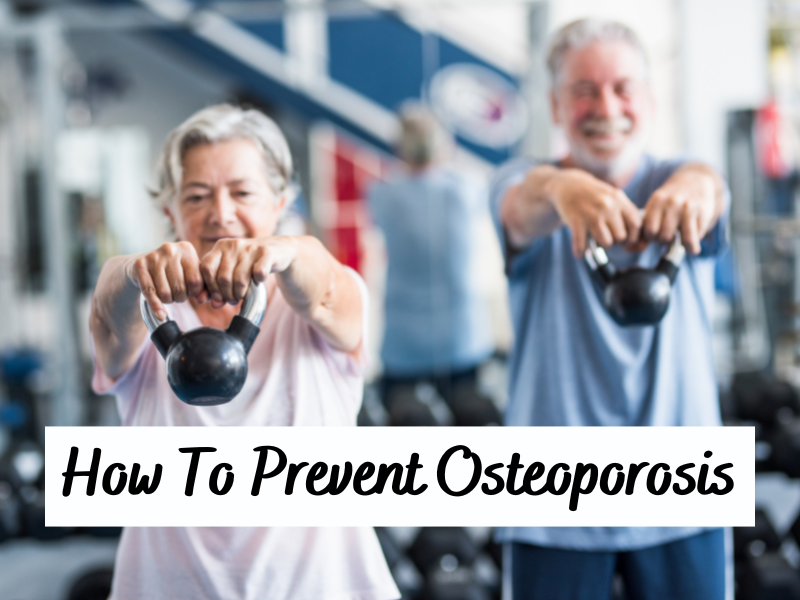
In this article, Naomi Albertson, M.D., explains how to prevent osteoporosis through a healthy diet and specific weight bearing exercises.
How can I prevent osteoporosis?
Osteoporosis is a serious disease caused by losing too much bone, making too little bone, or both. As a result, your bones become weak and may break from even a minor fall. Osteopenia (low bone mass) and osteoporosis do NOT cause pain, but fractures (broken bones) do.
There are many risk factors associated with bone loss and a few ways to slow down, or in some cases, prevent loss. Unfortunately, we cannot change age, gender, ethnicity, bone structure, family history, any prior history of broken bones, certain diseases (such as rheumatoid arthritis) or medication side effects. What we can change is body weight, lean body mass (muscle mass and tone), preventing falls by exercising regularly, avoidance of cigarette smoking and avoidance of alcohol intake more than 3 drinks daily.
What vitamins and minerals are important for building healthy bones?
Additionally, we need to give our bones what they need to form normal, healthy bone. Current recommendations from the Bone Health & Osteoporosis Foundation (BHOF) are to eat a healthy and varied diet, be sure to take in adequate vitamin D3, calcium and magnesium (see below):
- Women < age 50: calcium 1000 mg daily, vitamin D3 800 IU daily, magnesium 340 mg daily
- Women > age 51: calcium 1200 mg daily, vitamin D3 800-1000 IU daily, magnesium 340 mg daily
- Men < age 70: calcium 1000 mg daily, 800 IU daily, magnesium 400 mg daily
- Men > age 71: calcium 1200 mg daily, 1000 IU daily, magnesium 400 mg daily
What exercises are best for building strong bones?
Finally, exercise is critical! The most important thing is to avoid falls and the best way to prevent falls is to exercise. Current exercise recommendations are to do high impact, weight bearing exercises such as dancing, hiking, jogging/running, jumping rope, stair climbing or tennis. Low-impact weight bearing exercises can also help keep bones strong and are a good alternative if you can’t do high-impact. Examples are walking fast or doing low-impact aerobics. Muscle strengthening and balancing exercise will help prevent falls too, so don’t avoid swimming, yoga, or Pilates, but know that their gains are not in skeletal strengthening.
The medications available for the treatment of osteoporosis will be discussed in the next article.
